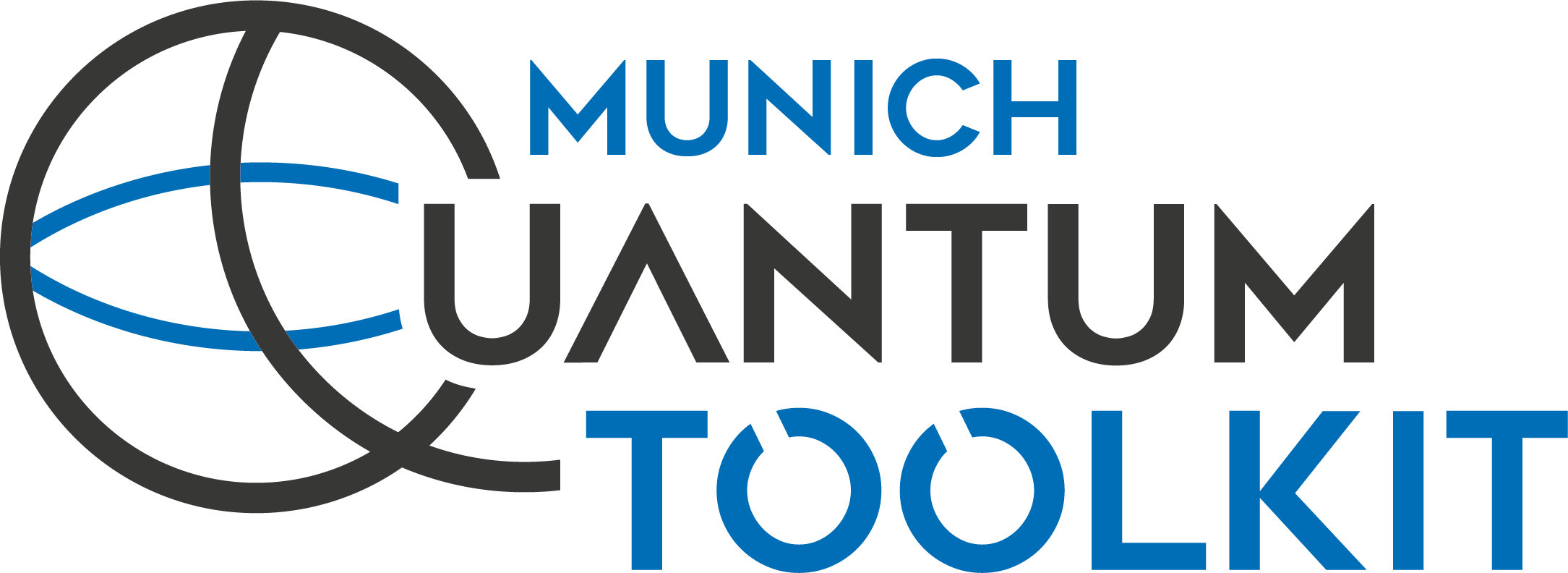
A tool for quantum circuit compilation developed as part of the Munich Quantum Toolkit (MQT)1 by the Chair for Design Automation at the Technical University of Munich. It builds upon MQT Core, which forms the backbone of the MQT.
If you have any questions, feel free to contact us via quantum.cda@xcit.tum.de or by creating an issue on GitHub.
QMAP is available via PyPI for Linux, macOS, and Windows and supports Python 3.8 to 3.12.
(venv) $ pip install mqt.qmapCompiling a given quantum circuit to a certain device is as easy as
from mqt import qmap
from qiskit import QuantumCircuit
from qiskit.providers.fake_provider import FakeLondon
circ = QuantumCircuit(3)
circ.h(0)
circ.cx(0, 1)
circ.cx(0, 2)
circ_mapped, results = qmap.compile(circ, arch=FakeLondon())Optimizing a Clifford circuit is as easy as
from mqt import qmap
from qiskit import QuantumCircuit
circ = QuantumCircuit(2)
circ.h(1)
circ.cx(0, 1)
circ.h(0)
circ.h(1)
circ_opt, results = qmap.optimize_clifford(circ)Detailed documentation on all available methods, options, and input formats is available at ReadTheDocs.
The implementation is compatible with any C++17 compiler, a minimum CMake version of 3.19, and Python 3.8+. Please refer to the documentation on how to build the project.
Building (and running) is continuously tested under Linux, macOS, and Windows using the latest available system versions for GitHub Actions.
QMAP has been developed based on methods proposed in the following papers:
[1] R. Wille and L. Burgholzer. MQT QMAP: Efficient Quantum Circuit Mapping. In International Symposium on Physical Design (ISPD), 2023.
[2] A. Zulehner, A. Paler, and R. Wille. An Efficient Methodology for Mapping Quantum Circuits to the IBM QX Architectures. IEEE Transactions on Computer Aided Design of Integrated Circuits and Systems (TCAD), 2018.
[3] R. Wille, L. Burgholzer, and A. Zulehner. Mapping Quantum Circuits to IBM QX Architectures Using the Minimal Number of SWAP and H Operations. In Design Automation Conference (DAC), 2019.
[4] S. Hillmich, A. Zulehner, and R. Wille. Exploiting Quantum Teleportation in Quantum Circuit Mapping. In Asia and South Pacific Design Automation Conference (ASP-DAC), 2021.
[5] L. Burgholzer, S. Schneider, and R. Wille. Limiting the Search Space in Optimal Quantum Circuit Mapping. In Asia and South Pacific Design Automation Conference (ASP-DAC), 2022.
[6] T. Peham, L. Burgholzer, and R. Wille. On Optimal Subarchitectures for Quantum Circuit Mapping. arXiv:2210.09321, 2022.
[7] S. Schneider, L. Burgholzer, and R. Wille. A SAT Encoding for Optimal Clifford Circuit Synthesis. In Asia and South Pacific Design Automation Conference (ASP-DAC), 2023.
Footnotes
-
The Munich Quantum Toolkit was formerly known under the acronym JKQ and developed by the Institute for Integrated Circuits at the Johannes Kepler University Linz). ↩








